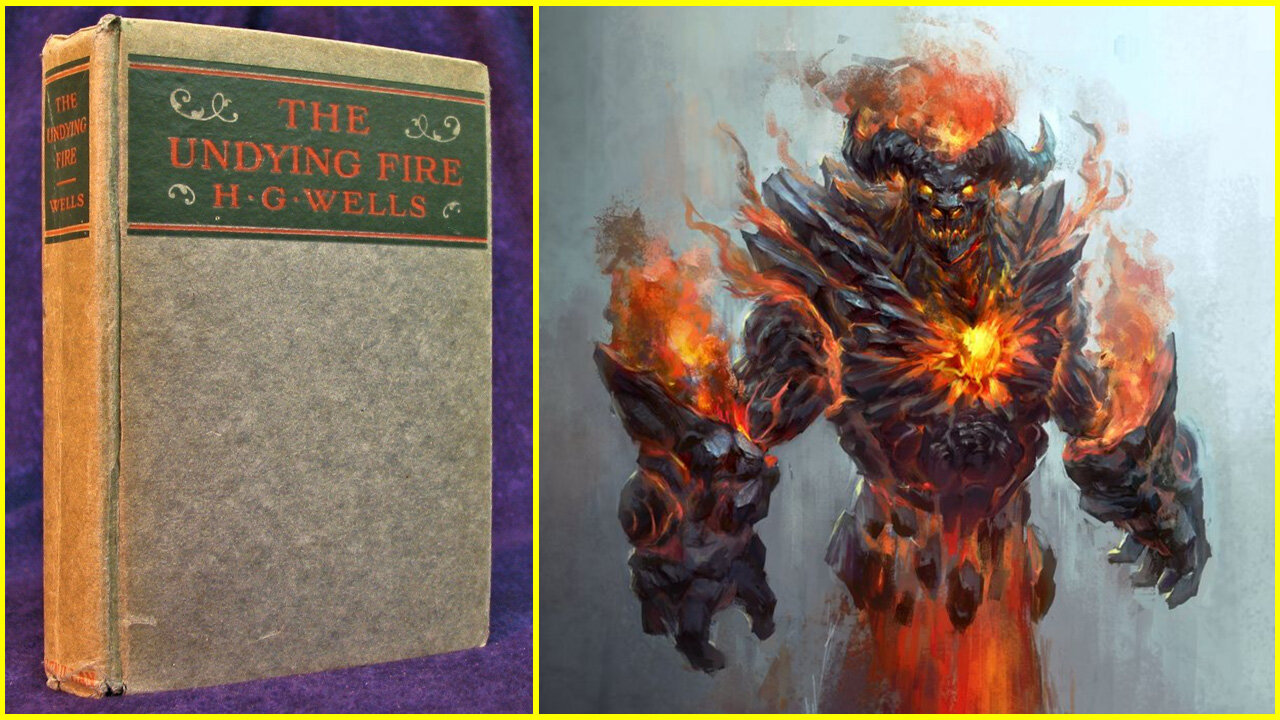Premium Only Content

'The Undying Fire' (1919) by H G Wells
'The Undying Fire' is a philosophical novel that reimagines the biblical story of Job in a modern context, reflecting Wells' concerns about the state of humanity, education, and faith after the devastation of World War I. The story is deeply allegorical, exploring themes of suffering, resilience, and the quest for meaning in a turbulent world.
The novel centers on Rupert Catskill, a schoolmaster modeled after the biblical Job, who faces a series of personal and professional crises. Catskill has lost his family in a tragic accident, his health is deteriorating, and he is under siege by societal and institutional forces. Despite his misfortunes, he remains committed to his ideals, particularly the belief in the transformative power of education to uplift humanity.
Catskill's adversities are compounded by three figures who resemble the "comforters" from the Book of Job. They represent different philosophies or worldviews, science without morality, institutional religion, and cynical materialism, all of which challenge Catskill's values. Through dialogues with these figures, the novel explores existential questions about faith, purpose, and human progress.
At the heart of the story is Catskill’s unwavering belief in the 'undying fire', a metaphor for the human spirit's resilience and creative potential. Wells uses Catskill's struggles to advocate for a progressive vision of humanity, grounded in a synthesis of reason, compassion, and a sense of higher purpose.
'The Undying Fire' is less well-known than Wells’ science fiction works but remains significant as an expression of his post-war philosophical outlook. It is a testament to his belief in human resilience and the potential for societal renewal through reason and education.
-
 DVR
DVR
The Trish Regan Show
3 hours agoTrump‘s FCC Targets Disney CEO Bob Iger Over ABC News Alleged Misconduct
15.7K15 -
 1:48:19
1:48:19
The Quartering
4 hours agoElon Calls White People Dumb, Vivek Calls American's Lazy & Why Modern Christmas Movies Suck!
85.3K44 -
 2:08:42
2:08:42
The Dilley Show
5 hours ago $25.74 earnedH1B Visa Debate, Culture and More! w/Author Brenden Dilley 12/26/2024
74.8K21 -
 4:55:59
4:55:59
LumpyPotatoX2
7 hours agoThirsty Thursday on BOX Day - #RumbleGaming
63.9K5 -
 1:04:52
1:04:52
Geeks + Gamers
6 hours agoDisney RATIO'D on Christmas Day | Mufasa Embarrassed By Sonic 3
50.4K4 -
 8:27:46
8:27:46
Sm0k3m
10 hours agoPlaying games on Rumble
30.6K2 -
 10:37
10:37
Russell Brand
2 days agoHow is this even allowed?
178K843 -
 1:37:26
1:37:26
Real Coffee With Scott Adams
7 hours agoEpisode 2701 CWSA 12/26/24
96.7K89 -
 2:58:58
2:58:58
Wendy Bell Radio
11 hours ago9 Steps Ahead
124K140 -
 2:03:46
2:03:46
LFA TV
20 hours agoTIME FOR A NEW SPEAKER! | LIVE FROM AMERICA 12.26.24 11am EST
73.2K47